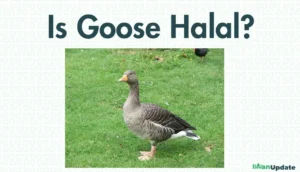Are Clams Halal? The Halal Status of Clams in Islam

Seafood is a diverse and beloved food category, enjoyed by people across different cultures and regions. For Muslims, observing dietary laws is an essential part of practicing their faith, ensuring that all food consumed is permissible, or halal, under Islamic law.
Among the many types of seafood, clams are a common delicacy, often found in various cuisines. But this raises a critical question for Muslims: Are clams halal or haram?
In this article, we will delve into the Islamic perspective on clams and discuss whether or not eating them is permissible according to Islamic law.
Understanding Halal and Haram in the Context of Seafood
In Islamic law, the terms halal (permissible) and haram (forbidden) play a significant role in determining what a Muslim can or cannot eat.
Generally, all things are considered halal unless specifically prohibited by Allah or His Messenger, Prophet Muhammad (peace and blessings be upon him).
When it comes to seafood, the majority of scholars agree that it falls under the category of halal, based on guidance from the Quran and Hadith. However, some exceptions exist, and it is important to understand the basis of these rulings.
Are Clams Halal?
Yes, clams are halal in Islam. The permissibility of clams comes from the broader Islamic ruling on seafood, which is largely considered halal. This is based on both the Quran and the teachings of the Prophet Muhammad (peace and blessings be upon him). Seafood, in general, is considered lawful, even if found dead, because the Prophet (peace and blessings be upon him) specifically mentioned two categories of dead animals that are permissible to eat: seafood and locusts.
In a well-known hadith reported by Ibn Majah, the Prophet (peace and blessings be upon him) said: “Two types of dead animals have been made lawful to us: seafood and locusts, and two types of blood: liver and spleen.”
This hadith confirms that seafood, including clams, is permissible to eat. Since clams are a type of shellfish that live in water, they are included under the general permissibility of seafood.
READ ALSO: Is Crawfish Halal in Islam? Things to Know
Quranic Evidence Supporting the Permissibility of Clams
The Quran also supports the view that seafood, including clams, is halal. In Surah Al-Ma’idah (5:96), Allah says, “Lawful to you is the game of the sea and its food as provision for you and the travelers.”
This verse establishes the general permissibility of all creatures found in the sea, which includes clams. Importantly, the wording of this verse is general, meaning no specific types of seafood are excluded from this permission.
Islamic scholars, such as Sheikh Ahmad Kutty, a senior lecturer and Islamic scholar at the Islamic Institute of Toronto, emphasize that Allah and His Messenger did not exclude any type of fish or seafood from this permission.
This is why the majority of scholars hold the view that all varieties of sea creatures are permissible, as Allah’s commands are comprehensive and nothing is forgotten by Him.
Why Clams Are Halal: Scholarly Consensus
The vast majority of Islamic scholars from all four major Sunni schools of thought—Hanafi, Maliki, Shafi’i, and Hanbali—agree that clams are halal.
Scholars such as Imam Malik, Imam Ash-Shafi’i, and Imam Ahmad all concur that seafood, including clams, is permissible.
Even within the Hanafi school, which is often more cautious about certain seafood, clams are included under the permissibility of sea creatures.
Imam Abu Hanifah and his two foremost disciples, Abu Yusuf and Muhammad, have similarly held the view that all types of fish are permissible, including shellfish such as clams.
This scholarly consensus gives Muslims peace of mind in knowing that consuming clams is aligned with Islamic dietary laws.
Hadith Supporting Seafood Consumption
In addition to Quranic evidence, the Hadith also supports the consumption of seafood. One such narration, reported by Abu Dawud, highlights the Prophet’s (peace and blessings be upon him) response when asked about the sea: “Its water is pure (for the purpose of purification rites), and its fish is lawful for you to eat.”
This statement reaffirms the permissibility of sea creatures, including clams, and their status as halal.
Furthermore, the Prophet (peace be upon him) did not specify any exceptions regarding which sea creatures are lawful to eat, making clams part of the halal category.
This clear guidance gives Muslims the confidence to include clams in their diet without concern.
Exceptions to Halal Seafood
While the general rule is that seafood is halal, there are a few exceptions. Some animals that live both on land and in the sea may require special consideration.
For instance, animals like frogs, turtles, and crocodiles are considered haram (forbidden) because they live part of their life on land and part in water, and they are not classified as fish.
However, clams, which live entirely in water, are not part of this exception and are halal to eat.
It is important to note that Islamic law emphasizes the avoidance of harm in all aspects of life. Therefore, if a type of seafood is harmful or poisonous, it would be considered haram, even if it is otherwise permissible.
For example, consuming poisonous fish or sea creatures that may cause allergic reactions would be prohibited due to the potential harm involved.
Can Muslims Eat Clams?
Yes, Muslims can eat clams without any hesitation. The consensus among Islamic scholars and the clear evidence from both the Quran and Hadith affirm that clams are halal. Moreover, the Prophet Muhammad (peace and blessings be upon him) allowed the consumption of seafood, and this includes clams, lobsters, crabs, shrimp, and other sea creatures.
Whether alive or dead, seafood is permissible, provided it does not cause harm to the consumer.
To be extra cautious, some scholars advise that for animals that live both on land and in water, such as crabs, they should be treated as sea animals unless specifically mentioned otherwise in Islamic rulings.
However, since clams live entirely in water, there is no need for them to be slaughtered or processed in any special way.
Conclusion
In conclusion, clams, like most other forms of seafood, are halal in Islam. Both the Quran and Hadith offer clear guidance that seafood is lawful for consumption.
Clams, being a type of shellfish that lives in water, fall under the category of permissible sea creatures. However, it is always wise to avoid any seafood that may pose a risk to health, as Islam places great emphasis on the preservation of life and well-being.
Muslims can confidently enjoy clams and other seafood as part of their diet, knowing that it aligns with the teachings of Islam.
As with all matters of faith, if there is ever any doubt, one can always consult a trusted scholar to gain further clarity. But overall, clams are considered a lawful and nourishing food, permissible for all Muslims.






